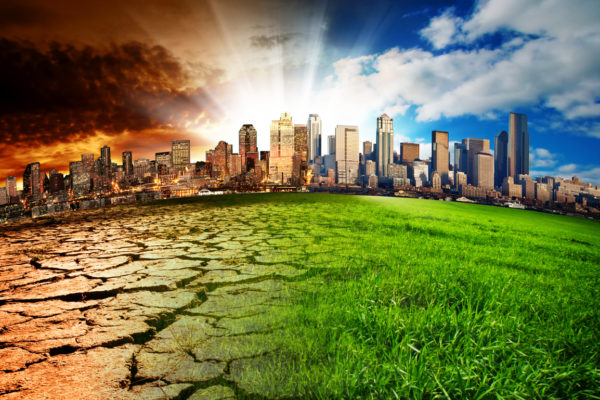Over the summer a lot of people talked to me about climate change instead of the other way around. They talked about the Great Salt Lake dry-up, about the Supreme Court justices deflating the EPA’s regulatory powers, about whether climate migration will ruin their real estate investments, about their 70-something friend who now “believes,” and about Sen. Joe Manchin as climate policy enemy No. 1 turned climate savior.
All this is casual but concerned talk. But it means one thing to me: the climate crisis is now a public feeling. Finally, more Americans who have been sheltered from the earliest and worst climate impacts have formed what Lauren Berlant calls an “intimate public” around climate crisis. People are feeling something, they’re curious, they “sense that matters of survival are at stake” and that listening and telling are routes “out of the impasse and the struggle of the present.” They are talking.
I’ve written about and taught environmental issues for over 10 years. My cranky tendency has been to roll my eyes on the phone with these friends and family. “Where have you been?! So many have been talking about this for so long” is what I think to myself. But this exasperated response misses the point: Now is the time to listen, to fuel the conversation, to galvanize that intimate public that feels the stakes of climate crisis and wants to get out of impasses.
Voting definitely matters. As Manchin and Sen. Kyrsten Sinema, his Democratic comrade in obstructionism, have taught us, party affiliation does not dictate a politician’s votes. When we choose party candidates at voting time, we need to learn our officials’ priorities and whether they’ll stick to them. With inflation and recession worries understandably polling as Americans’ top concerns, climate crisis risks slipping out of mind in November when 100-degree temperatures, hurricanes and wildfires, possibly, abate.
Many Republicans and some Democrats will sideline climate action in favor of economic stabilization and development. This is a false choice. As economists and entrepreneurs have explained, “decarbonizing” the economy — that is, transitioning to renewable energy and reducing greenhouse gas emissions by other means — generates jobs and spurs innovation while reducing damages to the economy from disasters in the long term. We need to elect those who see the synergies.
For example, the Inflation Reduction Act of 2022, signed by President Joe Biden, creates jobs and reduces pollution that harms health and consequently the economy. It has real problems such as opening up oil and gas leases in the Gulf and Arctic where climate impacts are already devastating, but it shows that we and our representatives can vote with both our money and climate action top of mind.
All the climate talk this summer should also amount to actions beyond voting. No one action is a silver bullet and no one action fits all lives, but there’s a menu from which to choose.
Some will start community conversations that identify local impacts and devise community-led adaptation and mitigation measures that benefit all. Some will march outside state capitols when legislators debate bills that promote the fossil fuel industry and punish those who don’t. Some will turn to nonviolent civil disobedience, inspired by Indigenous land and water protectors’ recent pipeline blockades and the history of Black activists forcing change through sit-ins. Some will take climate writer and podcaster Mary Annaïse Heglar’s advice to “do what you’re good at, and do your best” for the planet.
All this talk needs to turn into action, whether at the polls or the pipeline. But, either way, it must bend toward justice. It must undo the economic, political and social forces that put front-line populations, primarily the elderly, disabled, and Black and brown residents, at most risk of climate impacts and create alternatives that regenerate communities and ecosystems. As the shock of climate crisis hits more people, more of us should gather with neighbors and other affinity groups to learn more and envision better. Let’s resist NIMBYism and advocate for local and global climate justice.
Heather Houser is a professor of English at The University of Texas at Austin.
A version of this op-ed appeared in San Antonio Express News, Austin American-Statesman, and the Waco Tribune Herald.




